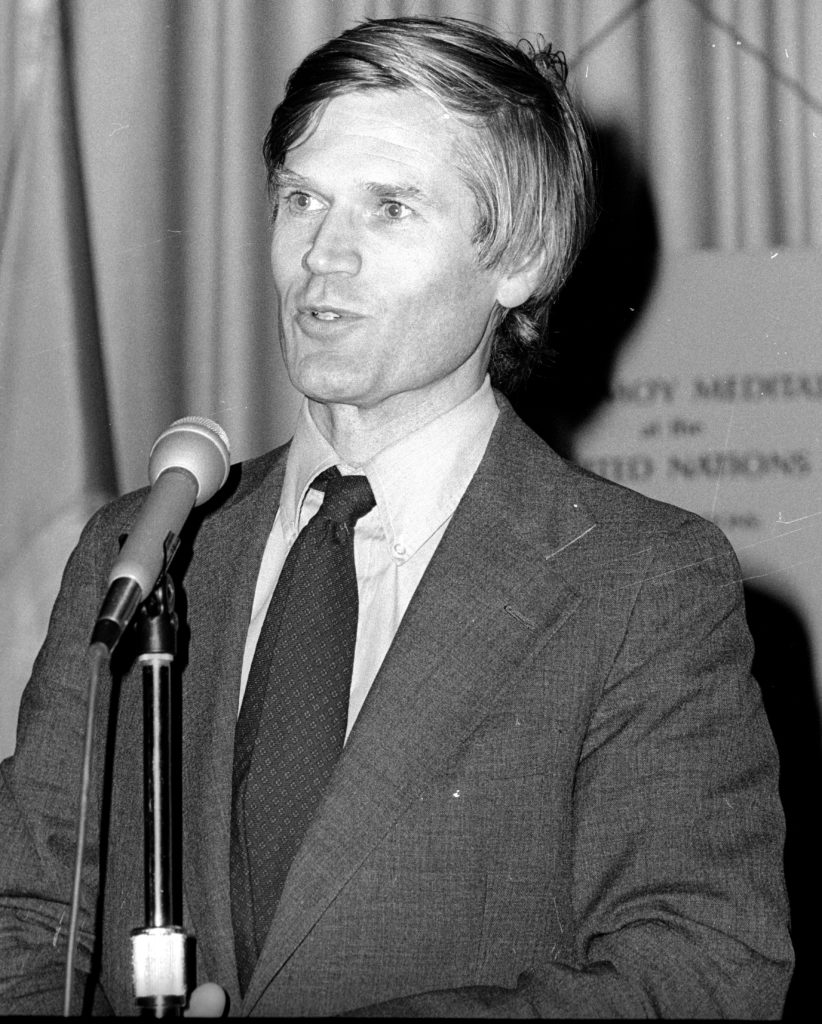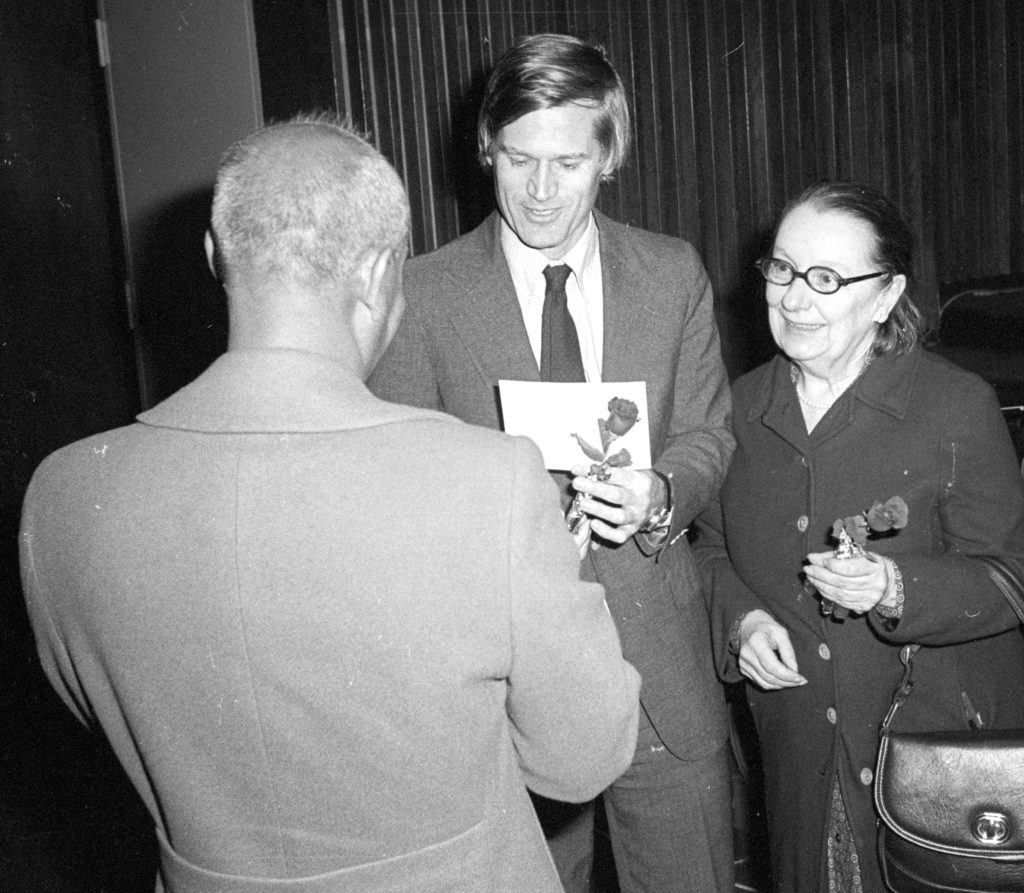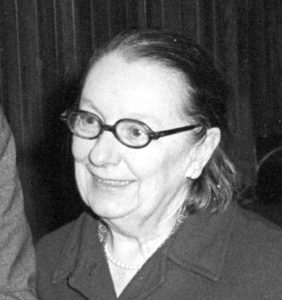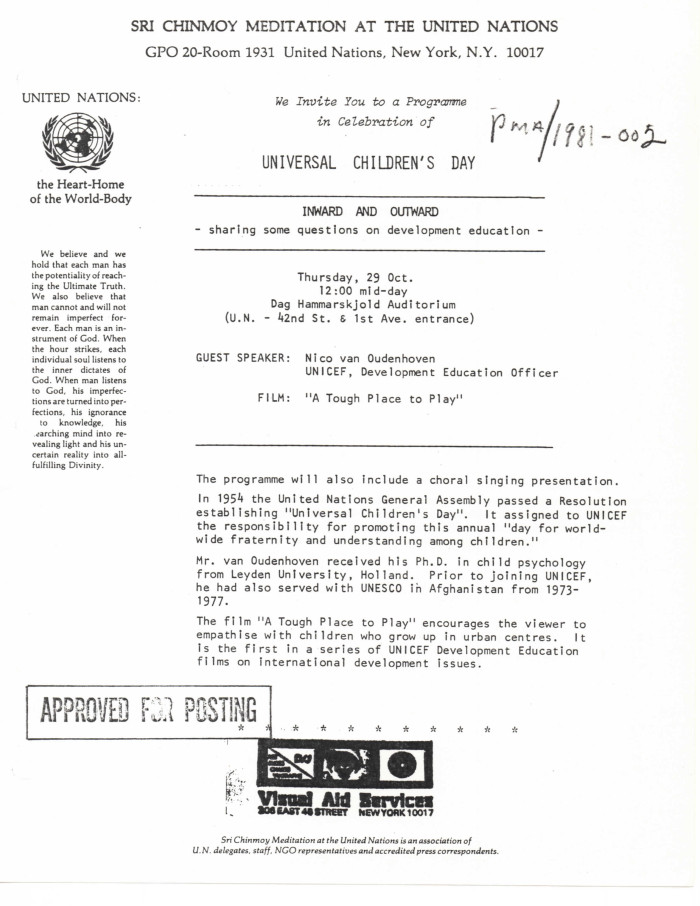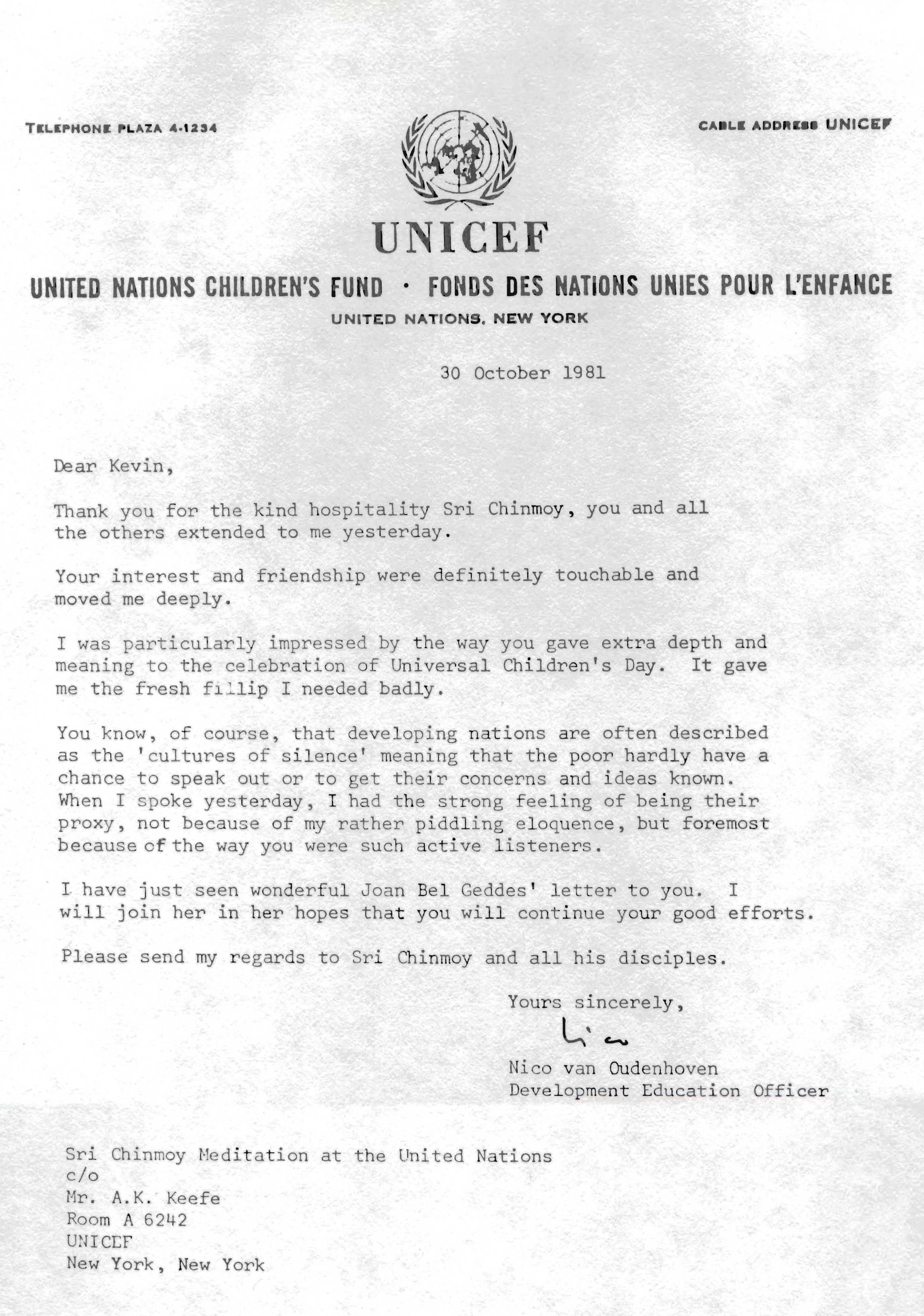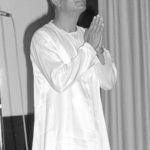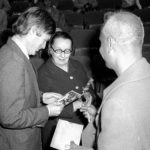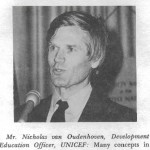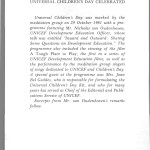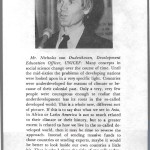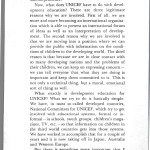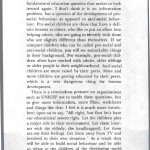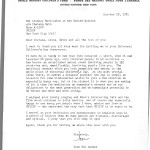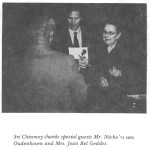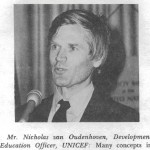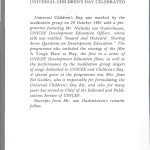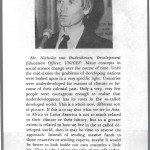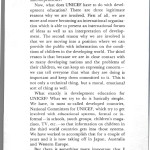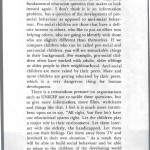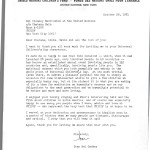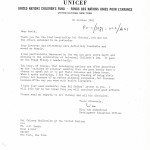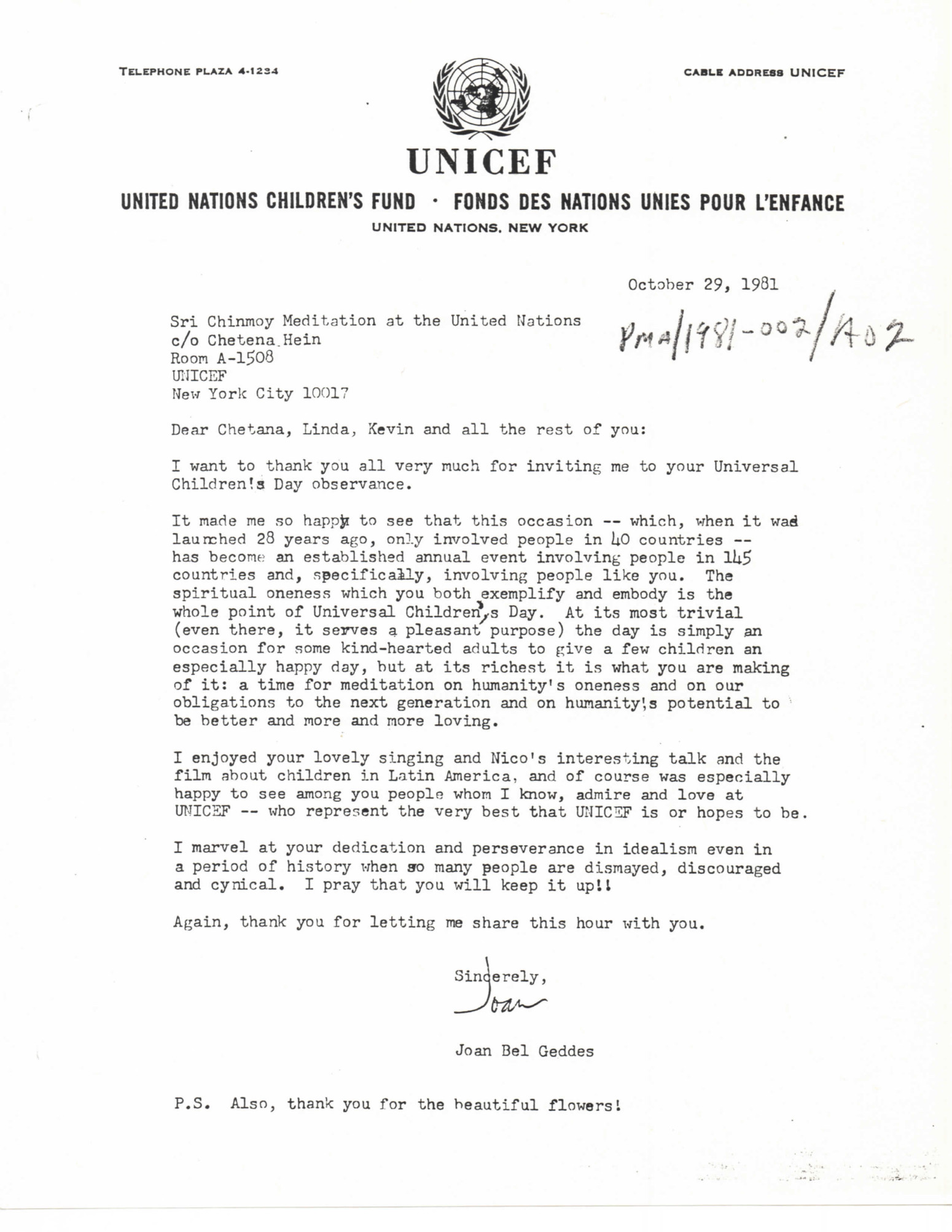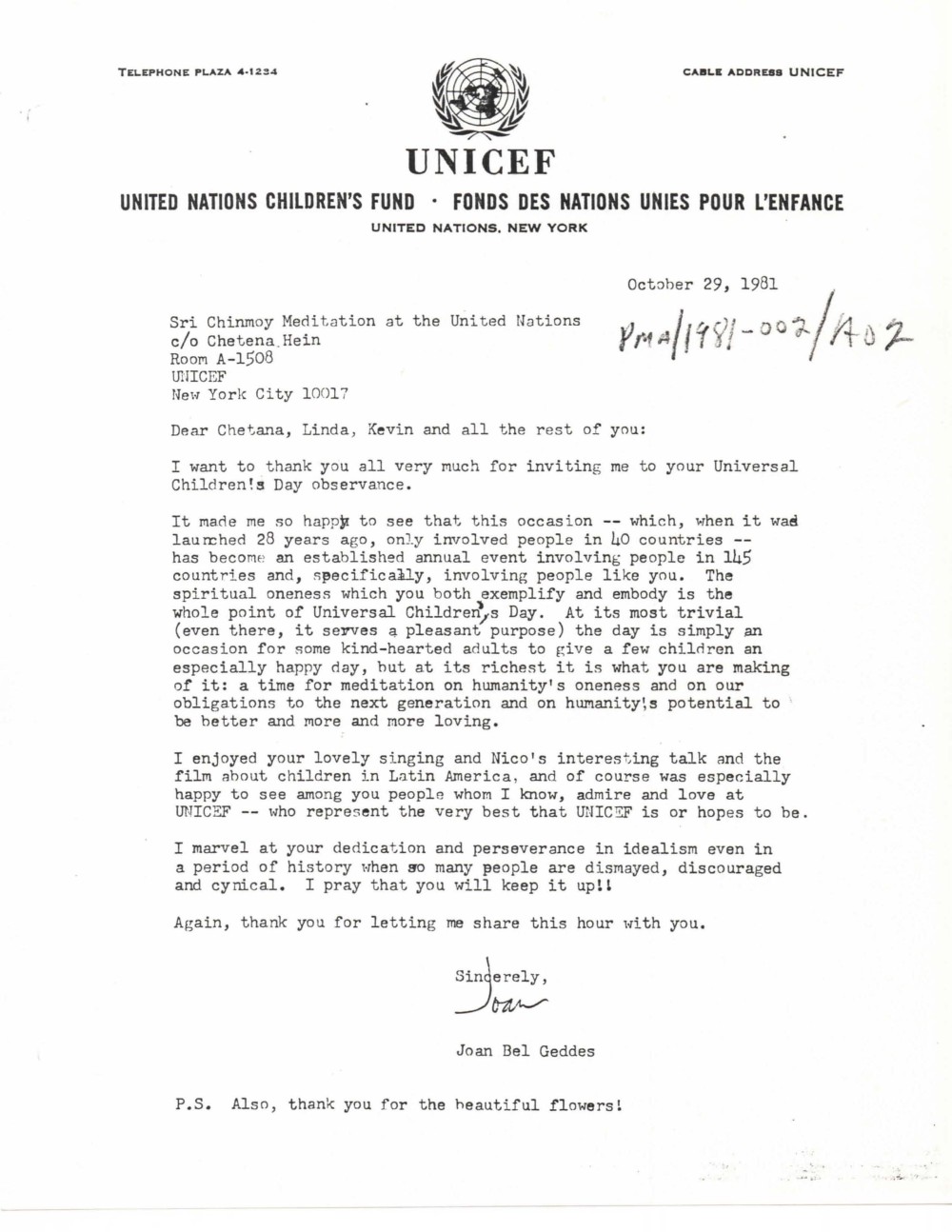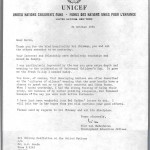Universal Children’s Day Celebrated – 1981 Oct 29 – UN, NY
Filed under Music and Songs | Thoughts from the UN community. | UN AnniversariesUniversal Children’s Day was marked by the meditation group on 29 October 1981 with a programme featuring:
Mr. Nicholas van Oudenhoven,
UNICEF Development Education Officer,
whose talk was entitled :
“‘Inward and Outward:
Sharing Some Questions on Development Education.“
The programme also included:
- the viewing of the Film:
“A Tough Place to Play”,
the first in a series of UNICEF Development Education films,
- as well as the performance by the meditation group choir
of songs dedicated to UNICEF and Children’s Day.
- A special guest at the programme was
Mrs. Joan Bel Geddes,
who is responsible for formulating the Universal Children’s Day Kit, and
who for many years has served as Chief of the Editorial and Publications Service of UNICEF.
Excerpts from Mr. van Oudenhoven’s remarks follow.
Mr. Nicholas van Oudenhoven, Development Education Officer, UNICEF:
Many concepts in social science change over the course of time. Until the mid-sixties the problems of developing nations were looked upon in a very specific light. Countries were underdeveloped for reasons of climate or because of their colonial past. Only a very, very few people were courageous enough to realise that underdevelopment has its roots in the so-called developed world. This is a whole new, different sort of picture. If this is to say that what we see in Asia, in Africa or Latin America is not so much related to their climate or their history, but to a greater extent is related to how we live in the so-called developed world, then it may be time to reverse the approach. Instead of sending massive funds to those countries or sending experts, maybe it would be better to look inside our own countries a little bit.
That is why I chose the title of my talk today, in an oblique reference to one of Sri Chinmoy’s poems, “Inward, Outward.” It’s time to look inward again .
That is what development education is – an effort to change the conditions, situations and attitudes of people in the so-called developed world in order to bring about change in the developing world. The main idea behind it is interdependence.
Now, what does UNICEF have to do with development education? There are three legitimate reasons why we are involved. First of all, we are more and more becoming an international organisation which is able to present an international forum of ideas as well as an interpretation of development. The second reason why we are involved is that we are moving into a position where we can provide the public with information on the conditions of children in the developing world. The third reason is that because we are in close contact with so many developing nations and the problems of their children, we can keep on expressing concernwe can tell everyone that what they are doing is important and keep them committed to it. This is not only a technical thing, but a moral, emotional sort of thing as well.
What exactly is development education for UNICEF? What we try to do is basically simple. We have, in most so-called developed countries, National Committees for UNICEF, which try to get involved with educational systems, formal or informal- in schools, youth groups, children’s magazines, TV, etc. – so that information on children in the third world countries gets in to those systems. We have worked to accomplish that for a couple of years and it is now taking off in Japan, Australia and Western Europe.
But there is something more important that I would like to discuss with you. If you go to any school in the United States, Western Europe or 33 even Japan, you will see that there is an abundance of information, and yet the children know so little. How is it that these children don’t reach out to this information, are not interested in it? This is a fundamental education question that makes us look inward again. I don’t think it is an information problem, but a question of the development of pro-social behaviour as opposed to anti-social behaviour. Pro-social children are those that have a definite interest in others, who like to put an effort into helping others, who are going to identify with those who are slightly different than themselves. If we compare children who can be called pro-social and anti-social children, you will see remarkable things in their background. For example , pro-social children often have worked with adults, older siblings or older people in their neighbourhood. Anti-social children are more raised by their peers. More and more children are getting educated by their peers, which is a very dangerous thing for human development.
There is a tremendous pressure on organisations such as UNICEF not to tackle these questions, but to give more information, more films, wall charts and things like that. I feel it is much more incumbent upon us to say, “All right, but first let’s have our educational system right. Let the children play a major role in their environment. Let them interact with the elderly, the handicapped . Let them act out their feelings. Get them away from TV and involved in their own situation.” As a result they will be able to build social behaviour and be able to relate to the children of the developing world and, as a result of all this, become able to really process the relevant information in their environment.
Sri Chinmoy thanks special guests Mr. Nicholas van Oudenhoven and Mrs. Joan Bel Geddes.
Message after the event from Mr. Nicholas van Oudenhoven to Sri Chinmoy and members of the Peace Meditation at the U.N.:
UNICEF
UNITED NATIONS CHILDREN’S FUND . FONDS DES NATIONS UNIES POUR L’ENFANCE
UNITED NATIONS, NEW YORK
30 October 1981
Thank you for the kind hospitality Sri Chinmoy, you and all the others extended to me yesterday.
Your interest and friendship were definitely touchable and moved me deeply.
I was particularly impressed by the way you gave extra depth and meaning to the celebration of Universal Children’s Day. It gave me the fresh fillip I needed badly.
You know, of course, that developing nations are often described as the ‘cultures of silence ‘ meaning that the poor hardly have a chance to speak out or to get their concerns and ideas known. When I spoke yesterday, I had the strong feeling of being their proxy, not because of my rather piddling eloquence, but foremost because of the way you were such active listeners.
I have just seen wonderful Joan Bel Geddes ‘ letter to you. I will join her in her hopes that you will continue your good efforts.
Please send my regards to Sri Chinmoy and all his disciples.
Yours sincerely,
(signed Nico)
Nico van Oudenhoven
Development Education Officer
Sri Chinmoy Meditation at the United Nations
New York, New York
Message after the event from Mrs. Joan Bel Geddes to Sri Chinmoy and members of the Peace Meditation at the U.N.:
UNICEF
UNITED NATIONS CHILDREN’S FUND . FONDS DES NATIONS UNIES POUR L’ENFANCE
UNITED NATIONS, NEW YORK
October 29, 1981
Sri Chinmoy Meditation at the United Nations
I want to thank you all very Much for inviting me to your Universal Children’s Day observance.
It made me so happy to see that this occasion — which, when i t was launched 28 years ago, only involved people in 40 countries – – has become~ an established annual event involving people in 145 countries and, specifically, involving people like you. The spiritual oneness which you both exemplify and embody is the whole point of Universal Children’s Day. At its most trivial (even there, it serves a pleasant purpose) the day is simply an occasion for some kind-hearted adults to give a few children an especially happy day, hut at its richest it is what you are making of it: a time for meditation on humanity’s oneness and on our obligations to the next generation and on humanity’s potential to be better and more and more loving.
I enjoyed your lovely singing and Nico’s interesting talk end the film about children in Latin America and of course was especially happy to see among you people whom I know, admire and love at UNICEF — who represent the very best that UNICEF is or hopes to be.
I marvel at y our dedication and perseverance in idealism even in a period of history when so many people are dismayed, discouraged and cynical. I pray that you will keep it up!
Again, thank you for letting me share this hour with you.
Sincerely,
(Signed Joan)
Joan Bel Geddes
P.S . Also, thank you for the beautiful flowers!
PDF format of report in periodic Bulletin : “Meditation at the United Nations” Sep – Oct 1981
bu-scpmaun-1981-09-10-27-vol-09-n-09-10-sep-oct-ocr-opt.pdf
See Page-images 33 to 39
Gallery 2 below is jpg format
Gallery 1 Photos from event
- Shraddha
- Shraddha
- Shraddha
- Shraddha
- Shraddha
- Shraddha
Gallery 2: report in periodic Bulletin : “Meditation at the United Nations” Sep – Oct 1981
See Page-images 33 to 39
Click on image below for larger or different resolution Photo – Images:
